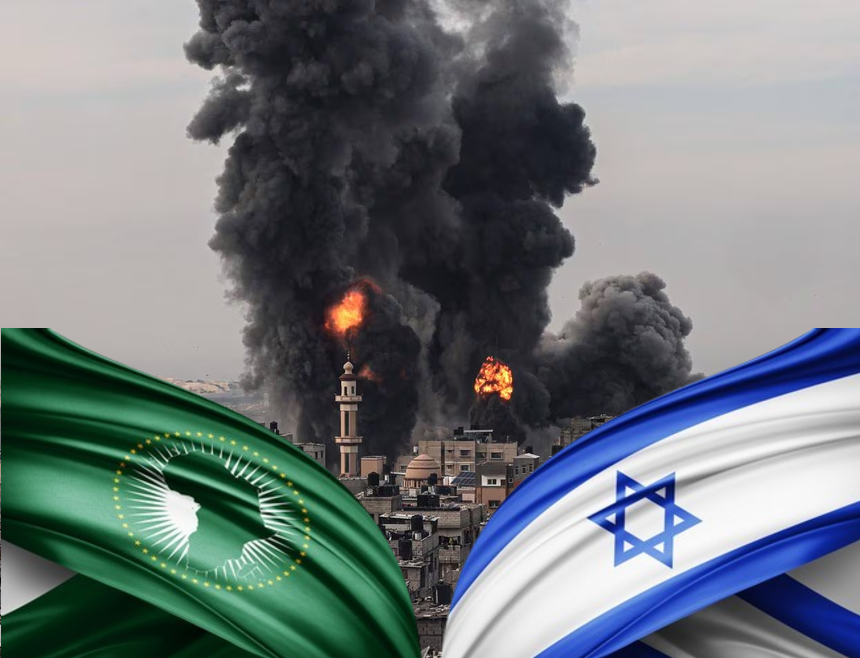
- The African response to the Israeli-Gaza conflict is multifaceted, reflecting historical alliances, diplomatic considerations, and evolving geopolitical dynamics.
- African countries that previously recognized Israel have now opposed Israel’s actions in Gaza and this was reflected in the United Nations General Assembly vote on a humanitarian truce.
- The nations of the continent navigate a delicate balance between expressing solidarity with the Palestinian cause and maintaining diverse international relations.
The ongoing Israeli war on Gaza has sparked diverse reactions across the African continent, highlighting the complexities of diplomatic relations, historical alliances, and regional dynamics. While it is challenging to generalize African public opinion due to a lack of continent-wide polling data, recent events shed light on the varied stances adopted by African governments.
Shifting Alliances
In the face of the conflict, numerous African governments, political factions, and segments of the public express sympathy for the Palestinian cause and condemn Israel’s military actions. Despite historical support for an independent Palestine, the evolving diplomatic landscape reveals a nuanced picture. Notably, African countries that previously recognized Israel, such as Mauritania, have now opposed Israel’s actions in Gaza.
United Nations Vote
The United Nations General Assembly vote on a humanitarian truce underscores the divergence of opinions. Thirty-five African states, including signatories to the Abraham Accords like Morocco and Sudan, supported the resolution, contrary to American preference. This indicates a growing sentiment aligning with the Palestinian cause within the African diplomatic sphere.
Diplomatic Actions
South Africa and Chad stand out as examples of African countries taking decisive diplomatic steps. Both nations recalled their diplomats from Israel, with South Africa citing civilian deaths and “collective punishment.” Chad’s move is significant given its recent diplomatic ties with Israel, illustrating the complexities of maintaining alliances amid regional conflicts.
Nuanced Positions
Some African countries, initially expressing solidarity with Israel, have adopted more nuanced stances as the conflict’s toll rises. Kenya, for instance, initially supported Israel but later called for de-escalation. This highlights the fluidity of African nations’ positions and their responsiveness to changing circumstances.
Regional Protests
Protests in North Africa, especially Morocco, have been more pronounced than in sub-Saharan Africa. Even Muslim-majority countries in sub-Saharan Africa have shown reluctance to allow large-scale pro-Palestinian demonstrations, balancing domestic considerations and diplomatic ties.
Global Context
The Israeli-Gaza conflict intersects with broader geopolitical dynamics, including the U.S.’s attempt to garner African support in the Ukraine war. However, African leaders, including longstanding allies, have been hesitant to fully align with U.S. interests, indicating a shifting global landscape.
Questioning the International Order
The conflict prompts reflection on the “rules-based international order,” as many African governments and their publics in the Global South perceive Western support for Israel as contradictory to international laws prohibiting collective punishment, civilian targeting, and other violations.
In conclusion, the African response to the Israeli-Gaza conflict is multifaceted, reflecting historical alliances, diplomatic considerations, and evolving geopolitical dynamics. The nations of the continent navigate a delicate balance between expressing solidarity with the Palestinian cause and maintaining diverse international relations.
(The author is a post-graduate student in International Relations at Kalinga University, Raipur. Views and opinions expressed are the author’s own)
Aayush Pal is a freelance writer on contemporary geopolitical developments. The views expressed in his work are entirely his own.
